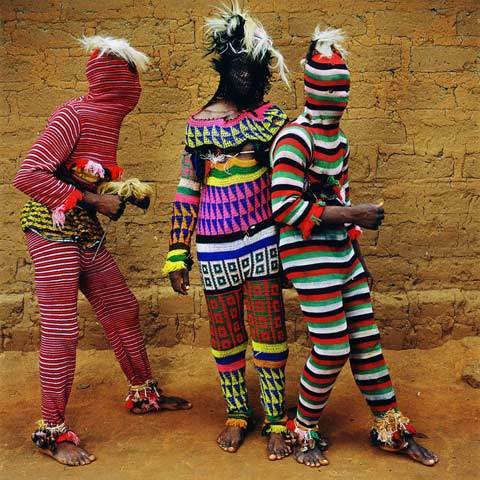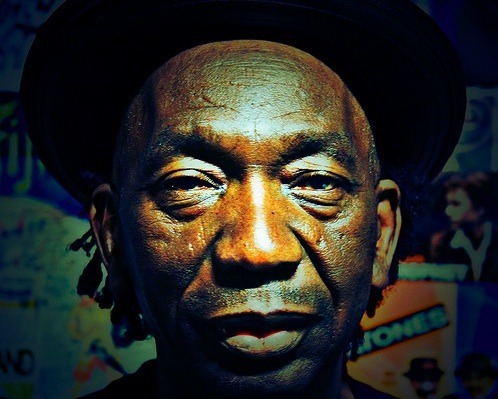Sean Jacobs's Blog, page 633
June 27, 2011
Notes on the South African Experiment
Achille Mbembe (the links are to previous references of Mbembe on this blog) gave a lecture at the Birkbeck School of Law in March of this year. You can download an audio recording of the talk entitled 'Law, Democracy and the Ethics of Mutuality: Notes on the South African Experiment' here.








The "Fall" of Capital
On May 18th, Slavoj Žižek, Mamdouh Habashi, Samir Amin, David Harvey and Zygmunt Bauman participated in a roundtable entitled "Meaning of Maghreb?" during the Decolonization: New Emancipatory Struggles conference in Croatia. Largely focused on Egypt (the moderator explained the "unexpected" uprisings had caught them by surprise, necessitating its inclusion in the discussion), Samir Amin kicked off the conversation by asserting the origins of the Egyptian uprising as global and potentially anti-capitalist in nature. Slamming the international media's claim that the Egyptian uprising (we cannot call it a revolution yet, he and Habashi caution) was solely about freedom, Amin is adamant the events since January 25th are part of the explicitly anti-imperialist movements long practiced by "the peoples of the South." Furthermore, responding to the moderator (Srećko Horvat, a brave soul indeed), Amin notes that the revolt was far from unexpected by Egyptians themselves.
Mamdouh Habashi elaborates on Amin's assertion by breaking down the five political blocks as he sees them: the old regime of Mubarak, the "Islamists," the nationalists (or Nasserites), the liberals and the radical left. Habashi shares some details of the coalition-building attempts among the last three, which he deems the pro-revolutionaries. Both Amin and Habashi are agreed that the Muslim Brotherhood and other factions that fall under the "Islamist" block are in fact anti-revolution, as their power had largely been provided by the regime – and financing by Saudi Arabia – since approximately 1972.
Žižek attempted to intervene in Habashi and Amin's claims that Egypt had the potential to embody an anti-capitalist movement by pointing out the uprisings in Syria and Libya did not demonstrate anti-capitalism as their primary goals. He also attempted to utilize China's dealings with the 'Global South' as proof that many nations were searching for a 'better' or 'different' sort of capitalism. To this, Amin responded vehemently that regardless of China's involvement in globalization, it is not an ally of the United States, Saudi Arabia and Israel, and therefore does not exact imperialist economic control over countries like Egypt in the same way the policies of the aforementioned powers do.
The video of the roundtable is long but well worth watching. David Harvey (after admitting, "I don't know very much about North Africa") explaining why "Autumn of Capital" should overtake the term "Arab Spring" is particularly noteworthy. The participants, despite their disagreements, are all interested in placing recent events in Egypt – political, economic, religious, military and otherwise – firmly within global anti-imperial and anti-capitalist contexts. It's quite an interesting conversation, even if just to be charmed by these five old men reveling in the delight (or in Žižek's case, skepticism) of a potentially renewed and revitalized Non-Aligned Movement-ish global movement.








June 26, 2011
June 26th, Madagascar
Today is the 51st anniversary of Malagasi independence. Things could have been better for its citizens. What with being governed by a former radio DJ and its army and with threats that Western governments and aid agencies will withdraw financial support. Anyway, we're celebrating. For the sake of the Malagasy people. This is also the start of a new regular gig where we'll celebrate a country's independence day by featuring some of the music of its young people. We had a harder time coming up with the short list below (we had an easy time with South Africa's Youth Day (June 16th) and yesterday's Mozambique Independence Day), but we found plenty of great stuff available. So here we go. (If we missed anything, let us know.)
Oladad:
K.F.R. feat. KIM:
Aora:
Suprem:
Volkany Sound:
Raboussa:








June 25, 2011
June 25th, Mozambique
We had much fun selecting recent videos coming out of South Africa last week, so we decided to follow up on this. At the occasion of each country's independence day, over the next months we'll try and collect songs (and videos, if we can sleuth them) we find interesting. We've already missed some this month, but if all goes well we're ending this series May 24th of next year, with Eritrean music. Today is June 25th, Mozambique's Independence Day. We couldn't leave out the "ball grabbing, bikini-clad videos" Davy Lane spotted last year, but there is more than that.
Iveth:
Turaz feat. Muzila:
Magnums:
Impro:
Dabo Boys Family:
Ziqo:
Dygo:
And Boima's favorite: Mr. Dino feat. DJ Damost:
Next up is Madagascar.








June 24, 2011
Music Break
I forgot. I wanted to give AIAC's Boima a shoutout for his Ghetto Balms Mix Tape at The Fader.
Download here.
Now it is officially weekend.








Weekend Special
* A lot of people (mainly Africans living in the West) don't like the focus of this short documentary film, "Street Life in Lagos" on life for the poor majority in Lagos shown on Al Jazeera English's "Witness" program, but I found its worth a look.
* New African, the London-based magazine with an odd mix of politics (Robert Mugabe can count on them for good press), has a list "The 100 Most Influential People in Africa."
* Speaking of lists, Foreign Policy Magazine, who can make a list of everything, has one of "The Foreign Policy Twitterati." There's one for Africa too. They say you should follow are the U.S. Embassy in South Africa (@USEmbPretoria), reporter Scott Baldauf of The Christian Science Monitor (@baldaufji), former New Times reporter Howard French (@hofrench), and former "Independent" journalist Ian Birrell (@ianbirrell).
* The Human Rights Watch Film Festival in New York City is still on till June 30th (check out Life After All, which I'll review next week).
* Watch the video and read about (and support) this film project by Penn professor Tukufu Zuberi, and his co-producer Julie Dash, "Africa and the World." He wears cool hats.
* Remember Beyonce's video declaring war on patriarchy (we can dream) where she references the hyena men in the photographs of Pieter Hugo, the South African photographer? Well, he does not like or even care for it. Instead, he prefers Nick Cave's use of references from his images.
* I missed this: but 26 governments in South Africa wants to "… set timetables for allowing people and goods to move freely from Egypt down to South Africa and from Angola across to Madagascar." It's about time: "The World Bank says trade among countries in sub-Saharan Africa accounts for just 10 percent of total trade, compared to 60 percent within Europe, 40 percent within North America and 30 percent within Asia." Read The Washington Post.
* It took me a minute to work my way through the New York Times front page profile of Dominique Strauss-Kahn's accuser, "From African Village to Center of Ordeal." Just the title. I'd recommend this takedown of that piece of journalism by the commercial US blog, Jezebel.
* Finally, there's photographer and professor Phyllis Galembo's images of masquerades from West Africa. Photography blog Featureshoot has a selection of her "bizarre portraits" up, including the one at the top of this post.
Back on Monday.








June 23, 2011
Music Break
The Dinka Brigade
From a series by photographer Pete Miller (remember him?) of Dinka cattle raiders in Southern Sudan on TIME magazine's Lightbox blog. As Glenna Gordan comments on her blog, Scarlett Lion:
In addition to be technically superb photographs, what I really like about these images is the individuality and identity that each of the subjects has. And by viewing a series of portraits, I get a sense of a textured community of discrete individuals, rather than a sort of pre-historic and stereotypical horde of angry men with guns and cows. It's difficult to make the same sort of sweeping statements all too common in media coverage when you as a viewer are offered the chance straight into the eyes of a young woman or check out a dude's awesome aqua and pink shirt. These images aren't of a "tribe," but of specific people with specific personalities who make specific choices.








Jadakiss and the King
Who advised the rapper Jadakiss to take this trip (recounted in this promotional video shot by his people; watch from about 5:50) to Swaziland where he went to perform at a "fundraiser" for Swaziland's royal family. As we know the royal family really needs the money. This is the same royal family whose king, Mswati III, paid for a US$6.3 million shopping trip by his wives to Asia in 2009; Swaziland is a country where about two-thirds of the people live in abject poverty, and more than a quarter of the adult population has AIDS. Oh, and the money from the national treasury for his family's upkeep is equal to the education budget. So who paid for Jadakiss' trip? I know the Swazi people weren't happy about this. In fact, they asked him to leave and boycotted his show.








June 22, 2011
Music Break
The old lion of Zimbabwean liberation music, Thomas Maphumo, and his band, The Blacks Unlimited, play Southpaw in Brooklyn next month on Wednesday, July 20. Get there. Samples of his oeuvre here.








Sean Jacobs's Blog
- Sean Jacobs's profile
- 4 followers



















